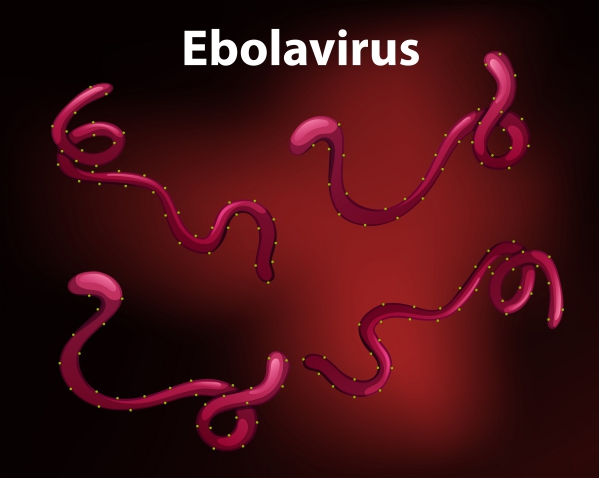What is viral gastroenteritis?
Viral gastroenteritis, also known as stomach flu, is an intestinal infection of viral origin. Acute gastroenteritis is a common problem around the world and is also a common cause of death. Gastroenteritis in general, can be caused by bacteria, viruses, parasites, toxins and drugs. However, viruses are responsible for a significant percentage of gastroenteritis cases present in all age groups. In the United States, viruses are the leading cause of acute gastroenteritis. When gastroenteritis is caused by viruses, it can range from a self-resolving watery diarrhoea associated with a variety of symptoms, to a severe dehydrating disease that can result in hospitalization or even death.
Usually, acute viral gastroenteritis can be classified in 3 main categories. The first one is when it occurs occasionally in infants and it is usually caused by rotavirus. The second category is when it occurs as an epidemic in semi-closed communities or as a result of pathogens ingested from food. Most of them are caused by caliciviruses. The last category occurs occasionally in adults, most commonly due to caliciviruses, rotaviruses, astroviruses or adenoviruses.
Prior to the existence of rotavirus vaccine, more than 3.5 million infants had acute viral gastroenteritis. However, in 2006, the rotavirus vaccine has been introduced and the incidence of the disease has significantly declined. Norovirus on the other hand, accounts for 19-21 million cases of acute gastroenteritis annually in the United States. It is the leading cause for outbreaks of gastroenteritis. Acute viral gastroenteritis is also a leading cause of infant death around the world. However, it is a disease that can arise at any age.

What causes viral gastroenteritis?
Viral gastroenteritis, as the name suggests, is caused by a virus. However, the causative virus varies with different age groups. In infants, the most common cause of acute viral gastroenteritis is the rotavirus. Other viruses that can affect infants include caliciviruses, astroviruses and adenoviruses. Noroviruses are mostly responsible for epidemic acute viral gastroenteritis. They can affect both children and adults.
The viruses spread from person to person through the fecal-oral route via contaminated food or water. Noroviruses can also be transmitted through air. The exact mechanism through which the viruses cause diarrhoea is not clear. It may be due to the toxins released by the viruses once they enter the body.
What are the signs and symptoms of viral gastroenteritis?
The clinical presentation for viral gastroenteritis varied from having no symptoms at all to being severely dehydrated and death. The signs and symptoms that may be present in viral gastroenteritis include:
- Fever
- Vomiting
- Watery diarrhoea, most of the time non-bloody
- Weight loss
- Decreased urine output
- Dehydration
- Sunken eyes
- Dry mouth
- Dry skin
- Confusion
- Abdominal pain
If high fever, bloody diarrhoea and severe abdominal pain is present, bacterial gastroenteritis should be suspected.


How is the diagnosis of viral gastroenteritis made?
To make the diagnosis of viral gastroenteritis, your doctor will start by asking you a series of questions to know more about your symptoms. He/she will then proceed with a thorough physical examination to look for signs of viral gastroenteritis. This will enable your doctor to rule out other diseases that may present with similar symptoms as viral gastroenteritis. In most cases, only a good history and physical examination can be sufficient to make the diagnosis.
If another pathogen is suspected to be causing the disease, stool tests can be done to look for the microbes. In cases where dehydration is suspected, blood tests are done to assess the level of dehydration. These tests include serum electrolytes, urea, creatinine, amylase, complete blood cell count and imaging tests of the abdomen.
How is viral gastroenteritis managed?
Viral gastroenteritis does not usually require any treatment since it tends to resolve on its own. The main treatment usually administered is fluid replacement in the cases where the person is dehydrated. The amount of fluids will depend on the severity of the dehydration. If the dehydration is still at an early phase, fluids can be taken orally, given that vomiting is not present. However, in severe dehydration or in people which a decreased level of consciousness, fluids are preferably administered directly into the veins. Medications to stop the diarrhoea or vomiting is not recommended in children. Some studies have shown that zinc supplements are useful to decrease the severity and duration of the disease.

How can viral gastroenteritis be prevented?
The Centers for Disease Control and Prevention (CDC) recommends the administration of rotavirus vaccine in infants. The two licensed vaccines in the United States are RotaTeq and Rotarix.
In general, the first essential preventive strategy remains a proper hygiene. This is especially important in households with at least one person with diarrhoea. Regular and proper handwashing is essential to prevent the spread through the fecal-oral route. Food should also be handled and washed properly using clean water supplies.
On a community level, proper sanitation available with clean water supplies and proper surveillance during outbreaks are crucial to prevent viral gastroenteritis.
What is the prognosis for acute viral gastroenteritis?
In general, acute viral gastroenteritis resolves on its own and carries a good prognosis. Severe cases are mostly found among the elderly, infants and people with a weakened immune system. Gastroenteritis caused by Rotavirus is the leading cause of infant death in the developing world. In the United States, elderly people are more at risk to end up dying from the disease.

Source:
Lin, B., 2018. Viral Gastroenteritis
Chiejina M, Samant H. Diarrhea, viral. 2018 Jan.
Chhabra P, Payne DC, Szilagyi PG, et al. Etiology of viral gastroenteritis in children J Infect Dis</i>. 2013 Sep 1. 208(5):790-800.
Centers for Disease Control and Prevention. Norovirus worldwide: global trends.









